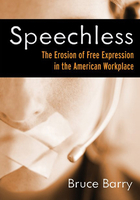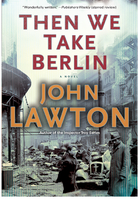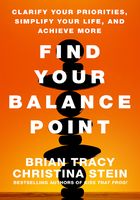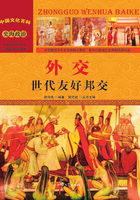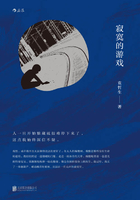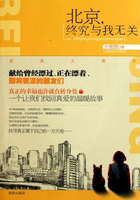Preface
No one who works today needs to be told that change in and out of the workplace is accelerating beyond our ability to grasp the implications of those changes. The future is uncertain. And during uncertain times, we search for what is truest about ourselves and what is most desirable about our relations with others. We ponder meaning. We also know, however, that uncertainty creates anxiety and sometimes desperate attempts to find something to believe in. Uncertainty engenders real opportunity as well as misleading choices, great leaders as well as false messiahs, and new ways of understanding the world alongside hollow maxims and deceptive promises. Understandably, we seek guides and guideposts to ease the anxiety of the journey. But we also need to depend on our own insight and imagination to cultivate, from our own experience, a way to move forward.
The Stirring of Soul in the Workplace is a reality check on management and the workplace: where we are, where we have been, and where we may be going. Although I am a management consultant, I am not writing from the perspective of making organizations more efficient or workers happier. Efficiency and harmony may be important goals, but they are not the only challenges we face. The challenge that runs like a thread through the chapters of this book is to keep alive the stirring of soul, a quality brought to life by grappling with the often ambiguous and contradictory aspects of our experience. In cultivating our own experience, we begin the process of acting as guides for ourselves and for each other. By struggling with ambiguity and contradictory impulses, we fan the flame of our own unique gifts and instincts.
But why talk about soul? Is there a danger in bringing a spiritual idea into the pragmatic world of work? While I was writing this book, a client working in corporate communications within a large conglomerate told me, "We're so busy moving people around, trying to meet our deadlines, trying to influence people to believe in what we're doing, that we just don't want to really look into anybody's eyes and see that they have souls. We should start with the premise that we have souls. But souls are difficult to manage. And even if we talked about people having souls, it would probably be from a corporate viewpoint." She said this last sentence with emphasis. Her point was not that a corporate viewpoint was inherently bad but that in the context of the current workplace, soul could easily be made into a slogan.
Her words, coming at a time of reflection in my life, helped remind me of my purpose and the challenge of writing about soul in organizations. I believe not only that we have souls, but that some of the qualities we associate with soul—meaning, memory, beauty, fragility, divinity, wildness, union—are fundamental aids for navigating into the future. But I also believe that soul is elusive and beyond our ability to harness it for only practical purposes. Her last sentences—"But souls are difficult to manage. And even if we talked about people having souls, it would probably be from a corporate viewpoint."—heightened my awareness and concern that our concept of soul is malleable, tempting us to accommodate soul to the outer world of practicality and immediate needs. Corporations and authors alike, we need to be cautious that the idea of soul not be used merely as an outer slogan for corporate inspiration, or even as an inner slogan, describing only our best intentions.
In the workplace, we have become polarized between managing the outer organization—work processes, organizational objectives, managerial structures—and the inner organization of people—emotional attitude, mental processes, cooperative spirit. Following a path with soul suggests an approach that borders both worlds but is not contained by them. In attending to experience and reflection on experience, we develop a heightened capacity to straddle these two worlds and discover something new.
The philosopher Jacob Needleman suggests that our capacity to recognize soul is at times hindered by a belief that the soul is a fixed entity. In contrast to this view, he offers an image of the soul as an emerging energy, activated and brought into being by our wrestling with the often contradictory nature of experience. In the workplace, where many different needs exist simultaneously, we birth the energy of soul by wrestling with our own experience of contradiction and forging a response from our deepest being.
But how does one begin? How can we bring the full force of our being to bear on the complexities of the workplace and the competing demands on our energies? Do we need to attend a workshop? Should we meditate? Should we find a guru?
I do not believe the answer lies in a program, a technique, or a mystical belief system. To listen to the soul's voice is to become more mindful, to pay attention to what is happening inside us and around us. The gathering of our attention awakens the energies of soul, and the patience to follow what we notice releases these energies within us.
The Soul in Organizations: A Bridge Between Two Worlds
My discussion of the soul borrows from an early insight that we cannot learn about the soul in isolation from group life. Organizations—religious, educational, business—are the context in which the and of "the individual and the group" takes place. Organizations are places where what is unique about the individual meets what is unique about social organization. Increasingly, organizations are where we spend the majority of our time and where the stirrings of the soul are often perceived as absent. To explore the challenge to the human soul in organizations is to build a bridge between the world of the personal, subjective, and even unconscious elements of individual experience and the world of organizations that demand rationality, efficiency, and personal sacrifice. For the individual, there is often no clear distinction between these worlds. We are both individuals and members of groups within organizations. We cannot leave behind who we are when we are inside organizations any more than we can shut out the organization when we are alone. We carry inside us all the time both the organization in our mind and the person we think we are. When there is a fit, we sense harmony and balance. When these two worlds collide, however, the individual feels torn and alone.
Social scientists have too often been seduced into finding ways to make individuals adapt to organizations. When organizations change, social scientists diagnose "resistance." They study principles of why people resist in order to "help" people resist less. They rarely explore the mystery of the and or ask what difference it makes if people function better in an environment not worth living in. To explore the role of the human soul in organizations, we must be willing to shift our viewpoint back and forth between what organizations want of people and what constitutes human complexity: the contradictory nature of human needs, desires, and experience.
To explore the human soul is not to abandon the importance of organizations in favor of the subjective and idiosyncratic tastes of individuals. We live in social organizations—families, communities, social clubs, workplaces—and it is in these groups that our souls are shaped and textured. Being open to the demands of relationship, whether with a single human being or within a group, provides an extraordinary opportunity. When conflict arises between the individual and the group, there is an opportunity to learn more about what our souls are made of.
Organizations and the Whole Human Being
The Stirring of Soul in the Workplace is drawn from my experience in organizations and from reflections on that experience over the past twenty years. For half of that time, I have been an organizational consultant, working with individuals and groups learning to create more effective organizations in the face of change, disruption, and sometimes turmoil. But the book originated in my earlier work with disturbed adolescents in residential homes and with inmates in a state correctional institution. In those confined spaces, the darker aspects of the soul were free to flare up; the less rational and less socialized parts of ourselves were less restrained, more visible. I learned about an underworld of soul, feelings of abandonment, rage, guilt, despair, and shame. I learned something in those years about the limitations of managing others. For years after my work in these institutions, I dreamed about the children and men I worked with and saw traces of their spirit in the faces of others in the outside world. I came to believe that genuine change is never a function of dominance, or even of education, but of empathy and common ground.
My early experience within institutions propelled me into a study of the origins of institutions. My question was not how can we change people but instead how can organizations better reflect the whole human being? How, I wondered, can our experience within organizations be the basis for how we shape change? How can we account for the different parts of ourselves, the upper realm of rational behavior and the underworld of passions and emotions? These two worlds meet all the time in organizations, though we may often be unaware of their connection. If we design organizations only with the upper world in mind, we are less able to account for the tremors that are set off from below. And even more relevant to organizations today, when we are cut off from the deeper regions of soul, we lose the energies that give rise to the imagination and passions necessary for creativity and adaptation to a changing world. The Stirring of Soul in the Workplace is a look at how we have fragmented work and people from the deeper regions of soul and what we may still be able to do about it.
Why Should We Care (and Read) About Soul in Organizations?
For everyone who has gone through various management fads and prescriptions, this book is meant as a retreat. It is for those who feel the need to reflect on how we have come to our current workplaces. What human price did we pay for the organizations we created? How does rapid change not only make us work harder but with less ability to be mindful of what we are doing? How can our own experience within an organization be valued and valuable during times of uncertainty? What role can insight and imagination play in becoming more effective?
I hope this book can serve as an alternative to the flood of management books offering to fix it, shift your paradigm, and get you home for dinner. It is also an alternative to the ceaseless flow of self-help books that promise you salvation regardless of the environment you work in. This book should be of interest to those who value reflection and imagination as prerequisite to a genuine capacity to act in organizations. I have written it for leaders managing change efforts, managers coping with the new demands of the workplace, consultants pondering their role in helping organizations develop, and individuals who seek a way of joining their own spiritual path with the realities and expectations of the workplace.
The Contents of this Book and the Journey of the Soul
The Stirring of Soul in the Workplace is organized into three parts. Part One, Perceiving the Soul, explores the idea of soul. How do we think about soul? What is its relevance today? What were some of the ancient origins of soul beliefs? In the first chapter, I write about soul as an interaction of the many different parts of ourselves, both an upper world of conscious intention and an underworld of feelings, fantasies, and imagination. And I point to how these questions remain alive in organizations today. Chapter Two is about the struggle we face when we acknowledge an underworld of shadows, contradictory impulses, and secrets we keep even from ourselves. In organizations, the recognition of shadow in collective behavior as well as in ourselves becomes a fundamental skill in navigating during times of turbulence and change. Chapter Three is a tale about the origins of institutional attempts to manage irrational behavior and social maladjustment. In exploring facets of the soul that had to be repressed, I present challenges for all of us to comprehend the loss of soul and the effects of surveillance, the uses of social conformity, and the desire for control over human behavior. In organizations today, the echo of these practices can still be heard, even amidst calls for self-regulation, self-managing teams, and employee empowerment.
Part Two, Chasing the Dream of Order, addresses the challenges to the soul in past organizational practices and in today's workplace. Part Two presents the problems we face in designing a workplace more reflective of the whole human being. It tells of the underworld of organizational structures, techniques, and philosophies for managing the human soul. Chapter Four is a story about the mechanization of the workplace and how individual experience became subordinate to the emerging technologies of the industrialized workplace. It is an account of material progress and the growing efficiency of production amidst fragmentation and standardization of how work was to be accomplished. Chapter Five is a retelling of the story of Frederick W. Taylor, an engineer honored and vilified for his ideas about creating a science of management. In Taylor's life and ideas are lessons about efficiency and control that we still debate today as we try to comprehend the science of reengineering and the complexities of managing change. In Chapter Six, I focus on the legacies of efficiency as they relate to human endurance, the meaning of work, and the challenge to value reflection as a skill for managing the contradictory experience of the workplace. Chapter Seven is a chronicle of how organizations attempt to reformulate motivational strategies and personal incentives in order to balance the needs of productivity with the needs for motivating the workforce. We are presented with the challenge to the soul to distinguish between the illusion of greater involvement and genuine efforts to face the conflicting realities of workplace demands.
Part Three, Journeying Toward Meaning, Coherence, and Wholeness, is about the question "So what?" In Chapter Eight, I explore a new way of looking at organizational role that suggests it can be a psychological stance one takes rather than a position one is given. In taking up a role, we must make use of the skill of experience and reflect on what truly matters, to the individual, to the organization, and to the larger community we serve. The ability to comprehend and respect an organization in the mind becomes a central premise for navigating the changing arrangements of the workplace. In Chapter Nine, I stress the need to think creatively about human systems, both the upper world of organizational structure and the underworld of human emotion and fantasy, because only then can we recognize patterns and act from within the stance of our role. Chapter Ten returns to the challenge to the soul in negotiating the journey from within the workplace. I talk about a need to respect uncertainty, an inclination for dialogue, and a regard for paradox and for the interconnectivity of all life.
The Stirring of Soul in the Workplace is about management and the workplace. But it is also about our trials as individuals to account for all of ourselves. The journey of the soul is indirect, circular, and metaphorical, imbued with a richness and confusion evoking our deepest longings and most profound fears. I have written this book partly for others, to leave them a record of my own journey to understand the invisible cry of the soul and the challenges we face. And partly I have written it for myself, to exorcise a responsibility I felt to put into words what seemed at times only ghostly intuitions. You may find that this book at times evokes your own ghosts and intuitions about organizations and your place within them. My hope is that the book will support your journey and offer some guideposts for traveling a path that has soul.
The Importance of Telling Stories
I learned about the soul as a child at the kitchen table, with my family telling stories to each other, jokes, fables, religious anecdotes, how it looked when a neighbor's kid slipped on the ice, or how it sounded when an argument broke out on the bus. Everyone got in on it, no matter how many times the same story was told or how long it took. We had time to listen, to interrupt, to yell over each other's voices. My mother had the most novel approach. She would tell a joke or sometimes a poignant story, and in the midst of our laughing or reflecting she would ask why it was funny or what about her story was so important. We never ceased to be amazed that she was earnest and wanted to know why, not to test us but to be sure that she wasn't missing something. My brother, my sister, and I would then take turns explaining what was funny or important. We each learned something new, not the least of which was that we all understood the jokes and stories differently.
I learned that the soul is expressed not only with people you care about but across the entire spectrum of humanity. I learned that it is not the number of times you hear a story that is important but the degree to which you let it into your heart. And I learned to appreciate, beyond the kitchen table where I received my early education, that stories shape the way we learn how to approach the world. If the stories speak to the struggles and hopes of our own experience, they give us confidence in our future, no matter how dark or even tragic the tale. But if the stories we tell each other do not reflect the experiences we have, then we stop believing both the stories and our own hearts.
I write about the soul in much the same fashion as I learned about the soul at my kitchen table: with stories and with speculation about what they might mean. My stories and comments are meant as an invitation for readers to reflect on their own experience, hoping that through reflection new truths and new ways of imagining the future will be revealed.
Appreciation
Though writing is a solitary activity, many friends supported me, offering counsel, appropriate caution, and comfort. I could not imagine attempting, let alone finishing, this work without them. Often, just when I feared I had reached the edges of my understanding or lacked the stamina to continue, I was guided by their insights and encouragements to finish what I started and leave off the moaning and wailing.
Glenn Tobe and Kate Regan coached, advised, and when necessary prodded me with their perspective and wisdom throughout all the stages of the manuscript. Their enthusiasm for the ideas in the book continually stirred my thinking and reminded me of the reasons I took up this project. In addition, my writing group colleagues in the Duck Club—Bill Bergquist, David Bradford, Susan Harris, and Peg Umanzio—engaged my thoughts, challenged my clarity, and badgered me to action as only those who share common passions can do. Susan Kelly, Nancy Barber, Nurya Love Lindberg, and my editorial collaborator, Sheryl Fullerton, aided me at critical stages of the manuscript's development. When I was at a loss for a structure to contain divergent ideas or for language to best communicate an idea or story, these four were there. Also, Nancy Raulston offered critical research assistance when deadlines loomed. I am also most appreciative of Sarah Polster, editor at Jossey-Bass, for taking the risk that this book could be brought to fruition and for her stalwart guidance along the way.
I am indebted to members of The Grubb Institute, whose deep reflections on roles and systems strongly influenced my approach to writing Chapters Eight and Nine. Papers on these subjects are available from the institute in its publication Professional Management. My thanks to Barry Evans, George McCauley, S.J., and J. Randall Nichols, who mentored me during my internship at the institute. I further want to thank Jill Janov and John Evans for reading the first full draft of this manuscript and offering feedback both gracious and wise.
Along the way, there have been many friends and colleagues who offered the thoughts and stories that have found their way into this work. I want to thank them, while offering my apologies to those I have not named: John Brett, Carol Briskin, Jules Briskin, Rick Brown, Cindy Buckle, Jeanne Cherbeneau, Lisa and Rufus Cole, Arthur Colman, Adam Cornford, Anna Ewins, Carolyn Firmin, Jan Felicitas, Gary Ferrini, Rachel Flaith, Diane Foster, Jim Herold, Amy Honigman, Paul Johnson, Barbara and Marty Kaplan, Mario Leal, Lanz Lowen, Barbara Bunn McCullough, Mern O'Brien, Perviz Randeria, Ralph Reed, Alison Reid, Saul Siegel, Toby Simons, Karen Young, and Arnold Zippel. I especially want to thank my clients, whose openness to delving into their own experience and offering perceptions of their workplace gave substance and meaning to the ideas I was exploring. They taught me to respect that in each of us lies an answer to those willing to find the question.
I want to thank my mother, who often seems to capture what is unspoken. When I worried that some might find my book disturbing, she recalled Mark Twain's comment that he wasn't sure which kinds of books he admired more: those that put him to sleep at night or those that kept him awake. What was important, she counseled me, was that I tell my story as best I can.
Finally, I want to thank my wife, Jane, and son, Alex, who accompanied me through the trials and demands of writing. They stuck with me, grounding me in the realities of family and the nurturance of caring for each other. I appreciate their patience, tolerance, and insistence that we are in this together.
Oakland, California Alan Briskin
June, 1996


